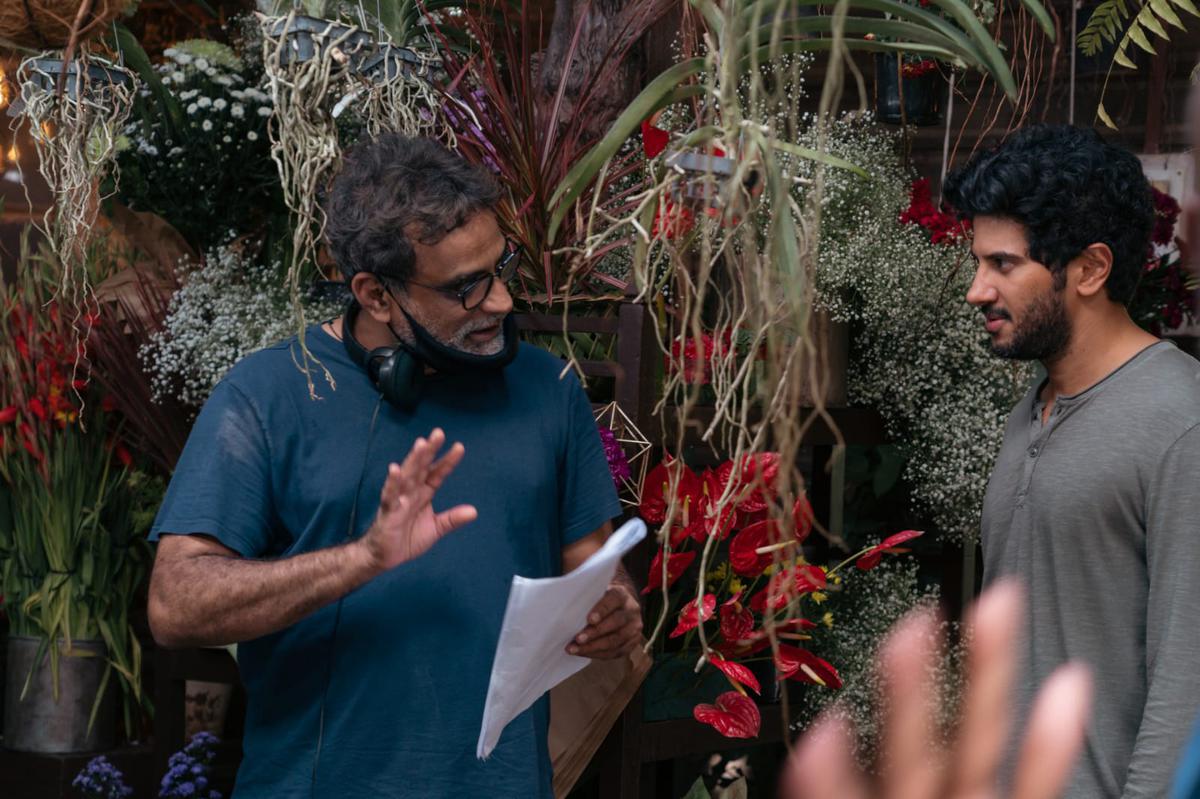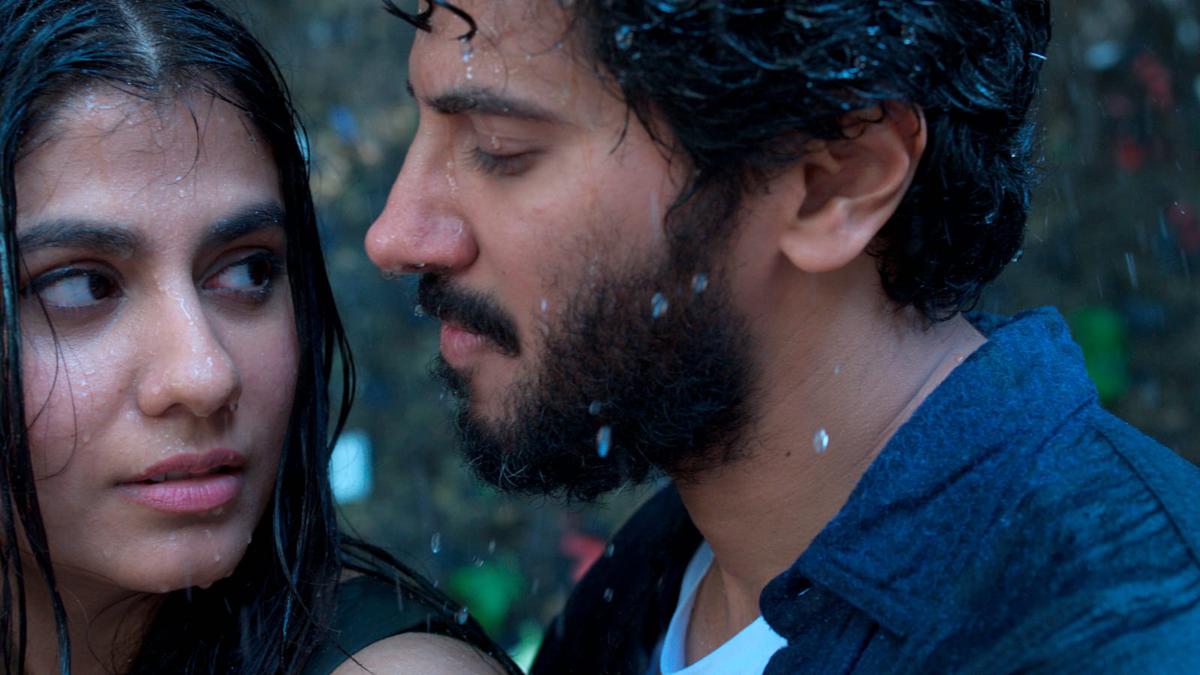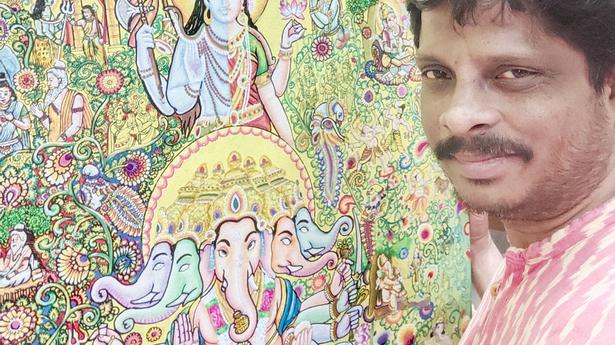The ‘Chup’ director talks about the motivation behind creating a serial killer who silences film critics, and what fuels his creative pursuits
The ‘Chup’ director talks about the motivation behind creating a serial killer who silences film critics, and what fuels his creative pursuits
You can critique his cinema, but can’t ignore R. Balki’s creative streak. Known for coming up with unique concepts every time he holds the megaphone, and especially remembered for making Cheeni Kum and Paa, Balki is now in the news for his latest film Chup where a psychopathic killer attempts to silence film critics who don’t know their job. The film has received mixed reviews, but has found an audience at the box[office.
“It is a niche film, not meant for mass entertainment and it is doing very well with the audience it intended to approach. I feel very touched and privileged that so many people liked the film,” says Balki.
The filmmaker talks about the role of critics in cinema, the influence of Guru Dutt on Chup, and how his films don’t mirror life as it is.
Edited excerpts from an interview:
What was the catalyst that pushed you to make Chup?
The catalyst was a little personal experience. When I read the first review of my first film ( Cheeni Kum) by one of the prominent reviewers, I found it was trashed in very rude language. So, since 2007, I had this idea about insensitivity towards the artist, and the flaw in the artist in receiving the criticism. It stayed in my mind for a long time until I gave it the form of a thriller.
How did Guru Dutt’s Kagaz Ke Phool become a plot device in the thriller?
I am a fan of Guru Dutt like most of us are, and I used Kagaz Ke Phool as an example of how a great filmmaker suffered because most critics of the time could not understand his most significant work. I don’t mean that Guru Dutt died because of criticism, but had the film won critical acclaim, it would definitely have served as tremendous support to the artist.
What do you think is a film critic’s role?
A critic’s role is to develop cinema, analyse cinema better, and guide people to the right film. Liking or not liking a film is up to the audience, but at least a critic can make an attempt to help them understand cinema better.
What is your reaction to the critics’ response to Chup?
More than 50% of critics have loved it for what it is; not just the concept, but the film. I applaud certain critics for analysing it so beautifully. Among the remaining, some have taken it personally; some have asked why take critics so seriously; some have said that it didn’t amount to much. They are entitled to their opinions. I don’t want any film to just be praised. I want every film to be properly analysed for what it is, in a language that is not littered with words like ‘crap’ and ‘cool.’ I don’t expect a critic to just come and enjoy the film; you are paid to contribute to the development of cinema.
A still from ‘Chup’.
| Photo Credit: Special Arrangement
Some critics feel that the film gives a sense that the director stands by the killer…
Yes, this is the problem that some of the critics had, but that is not true. I have just portrayed the story of an artist. I didn’t try to draw sympathy toward anybody. Chup is just about what an artist went through.
T he casting of the film is really interesting and it’s being spoken about as well. Can you tell us more about how these actors were chosen?
I felt Dulquer (Salmaan) has astronomical talent. A very understated actor who I thought could play a maniac without being maniacal and he has done a brilliant job. After watching The Family Man and Scam 1992, I felt Shreya (Dhanwanthary) is a great discovery for our industry. Sunny (Deol) is cast simply for his presence. If I had cast anybody else, he would have come across as weaker than the killer. With Sunny, you don’t get a feeling that the killer is one up on the system. With Sunny, the audience is always, like, he will get through to the man.

R. Balki and Dulquer Salmaan on the sets of the film
| Photo Credit: Special Arrangement
There is an unmistakable influence of Guru Dutt and his trusted cinematographer V.K. Murthy, as well as composer S.D. Burman on the film…
The starting point was, what if Guru Dutt and V.K. Murthy had shot this film in colour? Mumbai is always shown as a resilient city, but I wanted to romanticise Bombay. I shot in Bandra in actual rains; I didn’t create it.
As for music, I wanted to keep the flavour of S.D. Burman’s melodies. Of course, we revamped certain portions because the technology today is far richer. In Guru Dutt’s films, we find such fantastic melodies replete with such great pain. It is romantic and painful at the same time. The story of the boy in the film is also a juxtaposition of romance and pain. He is a normal guy with a maniacal side to him. I used the wooden blocks from J aane Kya Tune Kahi to see how a romantic song can also add a mystery element to the story.

A still from ‘Chup’.
| Photo Credit: Special Arrangement
The way your characters talk, they come across as smarter than the ordinary mortals that we see around us. Even the supporting characters come up with sharp one-liners. Is it you talking through all of them?
Every person makes a film for a certain reason. I don’t like mirroring life as it is in my films. I like portraying life, character, and relationships that I wish could be like that. In Chup, I didn’t wish people should kill, I wished people had a little more sensitivity. I wished to paint a world that gets affected by a lack of sensitivity.
In Cheeni Kum, I wished a love story could be like that, and in Paa, I wished what if a son with a problem could be as cute and cheeky as that. I always wish for a life that could be, rather than how it is.
There could be a debate on treatment, but your ability to come up with unique and distinct premises every time finds widespread appreciation..
Filmmaking is a very laborious process, and I got to have something that keeps me motivated. It gives me the energy to go through the duration of two years when the film is written and shot. I want to add something to the cinema of the world rather than only borrowing from it. I don’t want to say that I did a film like this or that. I may have succeeded a few times and failed many times, but that doesn’t matter. The distinctiveness of it, is what drives every process.
Where do you stand on the craft vs content, and inspired vs original debate?
I follow the content, and always try to have an original voice. In fact, I pride myself on at least attempting something that hasn’t been done before. Cinema is an art form and art forms can’t always be manipulated. That’s why a lot of people are uncomfortable watching my films because a lot of so-called cinema experts like to see the same thing in a slightly different form, in a new way. When you say something absolutely new, they are like ‘Oh!… can’t process it’
Isn’t it the case with all good art, that new experiments are appreciated only a few years after being first showcased?
What you are saying is true, but it is absolutely sad. Who is going to tell Guru Dutt today that Kagaz Ke Phool mattered? It is important to appreciate art in the lifetime of the creator.
What’s next for you?
I finished Ghoomer with Abhishek (Bachchan) and Saiyami (Kher) during the lockdown. This is a story about a girl’s life, where a man plays a very important role in saying that it is not the time for self-pity.



